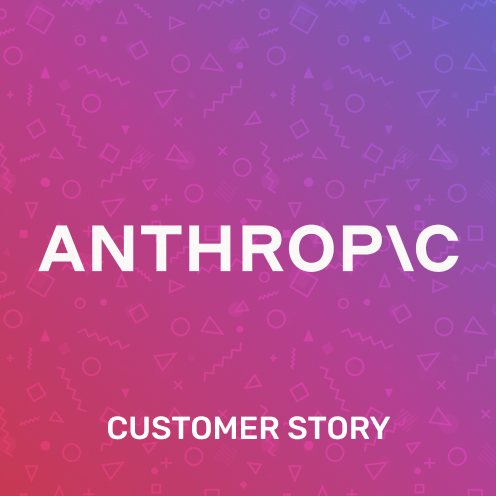We Just Gave $500,000 to Open Source Maintainers

Want to hear more?
Register for “The Future of Open Source: The State of Sustainability”, on October 26.
Sentry is an Open Source-aligned company, and our mission is to help developers ship with confidence. Part of shipping with confidence is knowing that Open Source dependencies are well-maintained, and one major way to ensure that dependencies are maintained is to fund them sustainably. We’ve always done our part since the beginning of Sentry, and we really got organized two years ago when we gave $154,999.89 to over 100 noncommercial projects. Last year we repeated the program and gave $260,028 to almost 200 projects. For our third Open Source Fund Fest, we’re nearly doubling our commitment again, to $500,000 for 500+ Open Source maintainers. This equates to $3,700 per developer employed at Sentry, which we think is quite reasonable compensation for the value we receive from the noncommercial, sponsorship-seeking part of the Open Source community. Thank you for your work!
Our program this year focused on two aspects: breadth and depth. We wanted to give at least a little bit to all of our dependencies (and other projects nominated by our employees). We then wanted to give larger amounts to some projects based on how heavily we depend on them in our company. The two partners we are working with to allocate and distribute funds are GitHub Sponsors and Thanks.dev—thanks to both of them for helping us!
The Importance of Sponsorships & Community
We dedicated 10% of our budget to giving small amounts (in the $4 to $10 per month range) to as many dependencies on GitHub Sponsors as we could. We were able to achieve 95% or greater coverage of our fundable dependencies in our three primary GitHub organizations (getsentry, codecov, and syntaxfm). We were not able to reach 100% because some of our dependencies have minimum sponsorships higher than $10, and a few of our dependencies are maintained by employees. Sentry is the first company to approach 100% coverage of all of our fundable dependencies through GitHub Sponsors. Nobody else even comes close (I asked).
Some frown on small amounts. They’re wrong. Even small sponsorships can bring great motivation to individual maintainers. For many of our dependencies, we are likely their first and sole sponsor. That feels great, and helps maintainers stay motivated and keep pushing their projects forward.
If 1,000 companies gave $5 per month to an average of 100 maintainers each, that would be $6,000,000 per year. That would probably get 90% of the sponsorship-seeking part of the Open Source community from zero to one, and for some it would be life-changing. That would be something to celebrate, and it seems quite achievable!
Sponsorship At Scale
Small amounts drive gratitude, but of course we do need to go further to sustain maintainers over the long haul. The remaining 90% of our budget went through Thanks.dev (except for $15,000 to the Open Source Initiative, which we paid directly earlier in the year in order to kick off research on the phenomenon of “delayed Open Source publication”). You can see all the details in this 📊 Google Sheet. Notable recipients this year include:
SvelteKit ($1,750), the framework Syntax uses for their new site.
Thanks.dev has been a crucial partner for us to achieve our goals. With 500+ maintainers and 3,000+ projects to fund across 1,000+ repos in three GitHub organizations, our program has outgrown what I can easily keep up with on my own. Thanks.dev has the closest thing to a scalable funding platform, with both automatic discovery and manual inclusions, and the ability to weight allocations at the org, repo, ecosystem, and individual project level.
Moreover, the Thanks.dev team is extremely responsive. Ali and Armin rapidly iterate on their software to accommodate us, and they hustle hard to discover and implement workarounds where needed. Sentry supports nine larger foundations. Thanks.dev did the grunt work of long back-and-forth email cycles to renew our sponsorships with these foundations, get invoices generated and processed, and place our logo. For the long tail of smaller projects, Thanks.dev individually emailed hundreds of maintainers and supported them through onboarding to the platform. It’s hard to imagine a better team to work with, and I highly recommend them to anyone who wants to run an Open Source funding program like ours.
Creating Change Through FOSS Funders and Beyond
Because Thanks.dev did so much of the grunt work this year, I was able to focus my time on building up a group called FOSS Funders. Duane O’Brien started FOSS Funders two years ago as a recurring Zoom call for decision-makers at companies who fund Open Source. I joined early on. A couple months ago, I built a website for the group, and started actively recruiting other companies to join. We are up to seven logos. Let’s make yours next! :-)
FOSS Funders is important, because the problem of Open Source sustainability will not be solved without a widespread cultural change in our industry towards meaningful voluntary sponsorship (the second major component of long-term change is taxation-based programs such as the Sovereign Tech Fund). We need to make it weird for companies not to support Open Source, and FOSS Funders is the best venue I’ve found for driving that change together with like-minded colleagues at Microsoft, SourceGraph, and elsewhere. Thanks to Duane and all of my fellow FOSS Funders for leading this change together. Let’s tell more stories about companies funding Open Source!
The reason Sentry can give meaningful amounts of money to the noncommercial, sponsorship-seeking part of the Open Source community is because we are a successful commercial member of the Open Source community. Balancing user freedom with developer sustainability is the core of our Open Source values, and one of the keys to our own sustainability was relicensing Sentry four years ago in order to protect ourselves from rapacious competitors. While the license we chose has served us well, it does have flaws, and we are working on writing a new license called the Functional Source License. If you are building an Open Source company, consider working with us to foment a “sustainable source” movement around this new license.
Lastly, we are following up on this blog post with a livestream conversation with two other leaders in Open Source sustainability from a funder’s perspective, Kara Sowles Deloss of GitHub Accelerator, and Fiona Krakenbürger of Sovereign Tech Fund. Register to join us on October 26 for that.
Thank you maintainers! Thank you funders! Thank you platforms! Let’s keep telling these stories and changing the industry together! 💃









